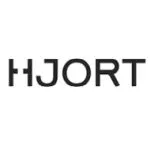PST presented the National Threat Assessment (NTA) for 2024 yesterday. It is important reading for Norwegian businesses but also leaves some fundamental questions.
Preventive security is no longer reserved for public entities or private companies that own critical infrastructure. The NTA 2024 emphasizes that the business sector is crucial in the work on national security. Security work is also crucial to maintain and strengthen the competitiveness of Norwegian business. The annual national threat assessments provide important information about the expected development in the threat landscape and are particularly relevant for businesses that otherwise do not have access to security-graded analyses and assessments. The NTA can be used to assess risks and vulnerabilities in the business. However, the NTA does not provide the necessary tools that the business sector needs to secure its own assets.
Increasing intelligence threat from Russia and China
The main trend in NTA 2024 is that the intelligence threat from Russia and China will continue to increase. For Norwegian businesses, it is especially important that according to the NTA, Russia and China will use ordinary and often legal economic means such as "acquisitions and investments in Norwegian companies to secure strategic advantages". Norway has implemented extensive sanction regimes and tightened export restrictions against Russia. This provides Norwegian business with the necessary legal room to protect assets against the threat from Russia. Regarding China, the situation is different. Currently, Norway has not implemented significant sanctions against China. This means that vigilance towards China and security work in Norwegian companies cannot be directly anchored in laws and regulations.
Economic measures targeting Norwegian companies
Another challenge is that economic measures targeting Norwegian companies may seem harmless and inconspicuous in isolation, but "may constitute a threat to fundamental national interests when seen in conjunction with each other". This is demanding for individual Norwegian companies to deal with. The lack of legal regulation of the security threat from China combined with a lack of access to security-graded threat assessments means that Norwegian business is given few tools to secure its own assets.
The practical question for a Norwegian company may be; is it okay to enter into an agreement with a subcontractor owned by China, or is it okay to employ an engineer married to a Chinese citizen? NTA 2024 does not provide answers to this type of question, but more than suggests that any business relationship with someone associated with China will be security problematic. The challenge for the Norwegian company will then be what legal room it has to protect itself against this.
Important insight for Norwegian business
NTA 2024 provides important insight into the development of the threat landscape for Norway and Norwegian business. The threat assessment also helps raise awareness among businesses about the importance of preventive security work. However, the concrete security work must be done by Norwegian companies themselves. This raises a number of practical and legal questions that neither NTA 2024 nor other security legislation provides the answer to.
The content of this article is intended to provide a general guide to the subject matter. Specialist advice should be sought about your specific circumstances.



